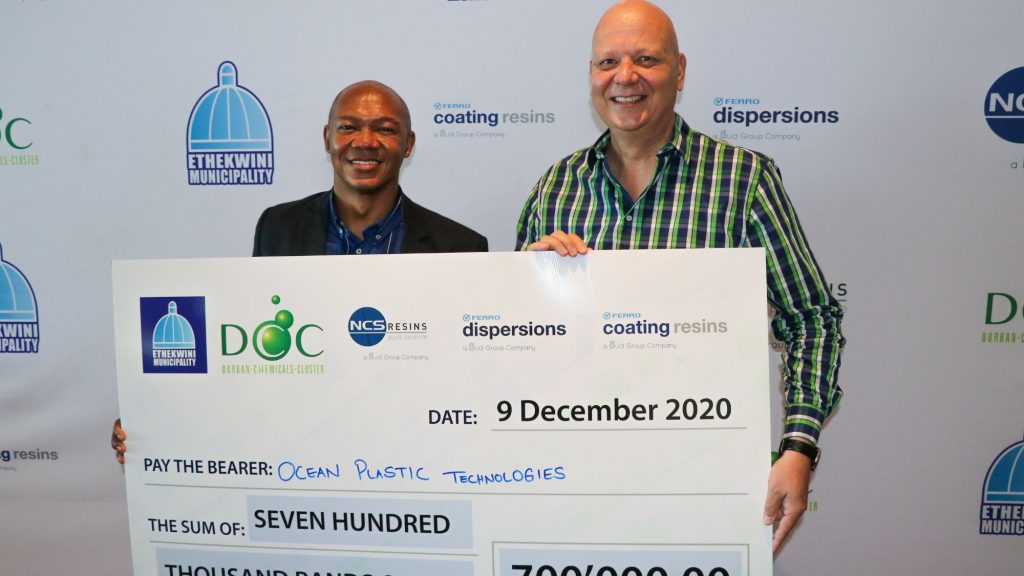In a move that signals a major leap forward in generative AI, OpenAI has quietly rolled out ChatGPT-5, its most advanced model to date….
What SMEs should be looking for in a start-up accelerator

Starting and running a business is challenging, especially in today’s economic climate. More than ever, the right support network for SMEs can significantly improve the odds of success. This is where an accelerator can be incredibly useful with more and more founders relying on these programmes to enable their growth.
However, choosing the right programme for your start-up or SME can be tough. There are several accelerators or similar programmes out there with tons of value to add, but how do you know if they are the right fit for your business?
According to Meghan King from the Durban Chemical Cluster, it starts with understanding what you should be looking for.
“An accelerator should be more than validating your business model and providing business support,” King explains. “It should also help you to identify skills gaps, provide skills development and industry mentorship opportunities, and most importantly, give you access to new customers and teach you how to scale sustainably.”
To ensure that the accelerator programme you are considering does all this and more, King says there are 5 key elements to look for:
1. Accelerated growth
Is the programme committed to working with you for a set timeframe to ‘accelerate’ your business growth, providing the assistance you need to get your company investment-ready and scalable? Will you have access to industry leaders offering expert advice, training, mentoring and networking? Will you have the opportunity to network with industry peers and other small businesses?
2. Access to new markets via accelerator
One of the main challenges facing SMEs is the ability to access senior people in the businesses of customers you are wanting to pursue. The Accelerator should facilitate this market access for you, giving you the opportunity to pitch your business potential and value proposition directly to a panel of industry leaders who are also potential customers.
For example, if you’ve got a product or service perfect for the chemical industry, will you have the opportunity to present your business to the decision-makers in the key businesses in this sector?
3. Scale sustainability through accelerator
Failing to scale sustainably is one of the top five reasons small businesses fail. Entrepreneurs can struggle to duplicate themselves and often lack capacity to go beyond the short-term, small-scale success of landing one major customer.
By definition, large businesses have mastered scaling and are, therefore, the perfect mentors to guide SMEs through the process successfully. Does your programme teach you to scale sustainably?
4. Access to capital
Does the accelerator programme give you the opportunity to access seed funding, investments, grants and/or preferential loans to fast-track your business? Most businesses are keen to expand but do not have the funds for the required resources.
You need to ensure that the programme will give you access to funding vehicles so that you can unlock your SME’s growth potential.
5. Industry-specific
There are many generic accelerators out there, and whilst they have their place, nothing beats a programme designed and hosted by an industry for that industry. For example, the Durban Chemicals Cluster is aimed at developing high potential SMEs as strategic suppliers to lead enterprises within the chemicals sector.
It is specifically looking for companies that can be shaped, groomed and developed to deliver the services required by the cluster members.
Meghan says that if you secure your spot in the right accelerator, the benefits are endless. This is echoed by Ravesha Govender, programme manager of the economic development unit at the eThekwini Municipality, which partners with the DCC to present the Accelerator Programme.
“It takes more than money to turn an idea or innovation into a viable, growing business, that’s why we leverage experience, expertise and partnerships to create a winning programme that ticks all the boxes and has already given many small businesses the legs they have needed to start their journey to becoming big companies,” says Govender.
Ocean Plastics is one such success story, according to Govender. The DCC Business Accelerator helped Ocean Plastic Technologies scale for growth and through their participation in the DCC Business Accelerator, they were able to fast track their business idea and create 450 new jobs.
- Ready to fast-track your business? The 2022 Durban Chemicals Cluster Business Accelerator programme is now open for applications. All black-owned, small-scale businesses in South Africa that supply the chemicals industry can apply online before 30 September. Any queries can be directed toaccelerators@bmanalysts.com.
ALSO READ: eThekwini invites start-ups to join chemicals accelerator

